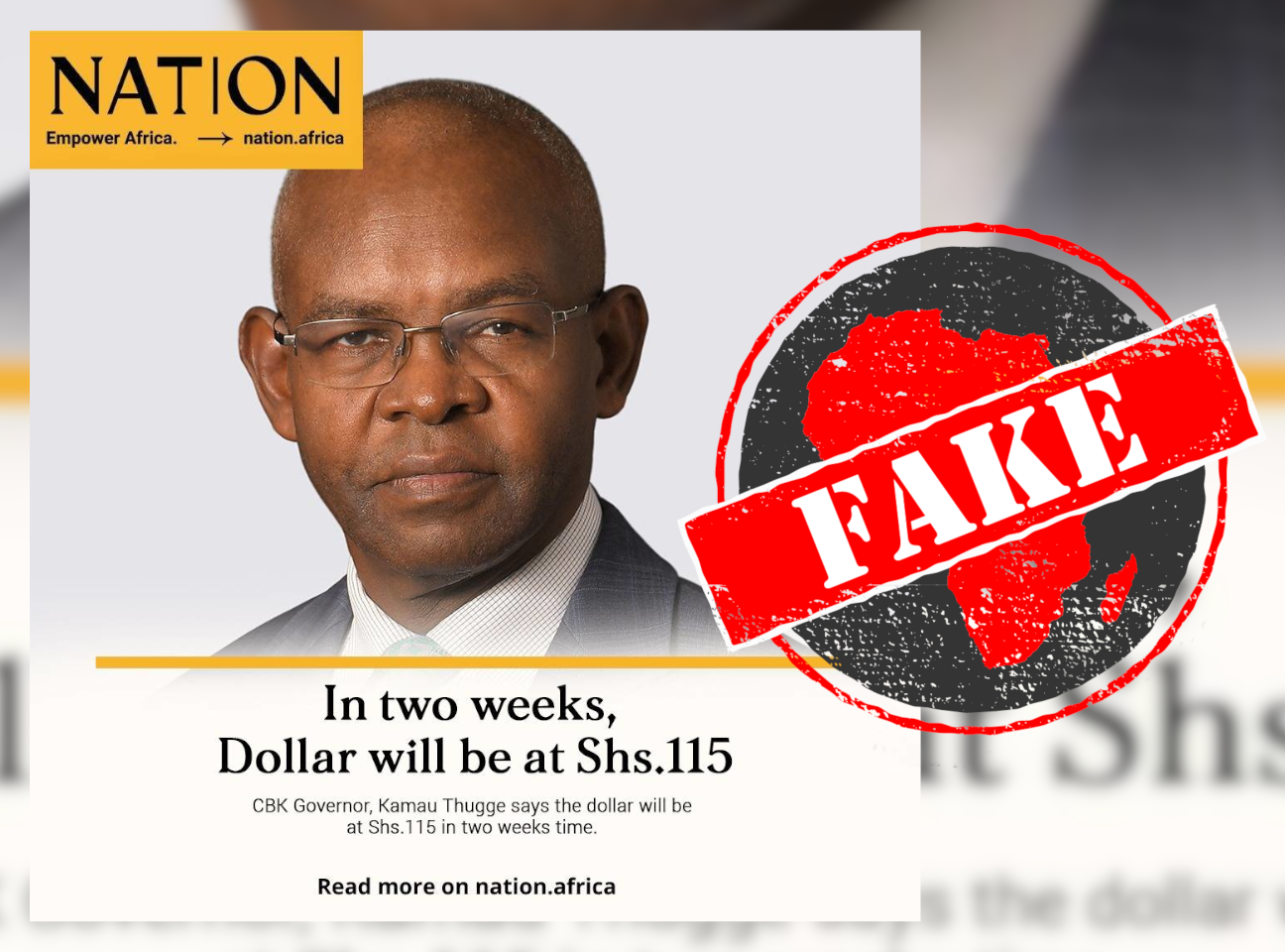IN SHORT: The Kenyan shilling has gained significantly against the US dollar since February 2024. But claims that the central bank governor said the local currency would trade as low as KSh115 to the dollar “in two weeks time” are false.
“In two weeks, Dollar will be at Shs. 115,” reads a graphic circulating on Facebook in Kenya.
The graphic attributes the quote to the Central Bank of Kenya governor, Kamau Thugge. It shows an image of Thugge and features the Nation Africa logo, implying that it was published by the digital news outlet.
The graphic started circulating on 14 March 2024, when Kenya’s central bank reported that US$1 was trading at KSh137.49, down from KSh138.8 the previous day.
The graphic has been posted on Facebook here, here, here, here, here, here, here, here, here, here, here, here and on X, formerly Twitter, here, here, and here.
In February, it was reported that dollars had flooded the market and people were rushing to get rid of the currency. This claim could lead to more of the same panic.
Did the graphic really come from the widely read Nation Africa news site? We checked.

‘Fake news alert’
The graphic gives no information on when or where Thugge is supposed to have made the statement. A lack of such details on social media is often a red flag that a story is false.
Given the keen interest in the value of Kenya’s currency against the dollar, such a statement would have been picked up on by major media outlets. But Africa Check could not find reputable reports of this anywhere.
On 14 March Nation Africa posted the circulating graphic on its official social media pages with the word “fake” printed across it in red.
“Please be advised that this card doing rounds on social media is fake. #FakeNewsAlert” reads their post on X.
We have found no evidence that Thugge said this, or that any media house quoted him as saying it.
Republish our content for free
For publishers: what to do if your post is rated false
A fact-checker has rated your Facebook or Instagram post as “false”, “altered”, “partly false” or “missing context”. This could have serious consequences. What do you do?
Click on our guide for the steps you should follow.
Publishers guideAfrica Check teams up with Facebook
Africa Check is a partner in Meta's third-party fact-checking programme to help stop the spread of false information on social media.
The content we rate as “false” will be downgraded on Facebook and Instagram. This means fewer people will see it.
You can also help identify false information on Facebook. This guide explains how.


Add new comment